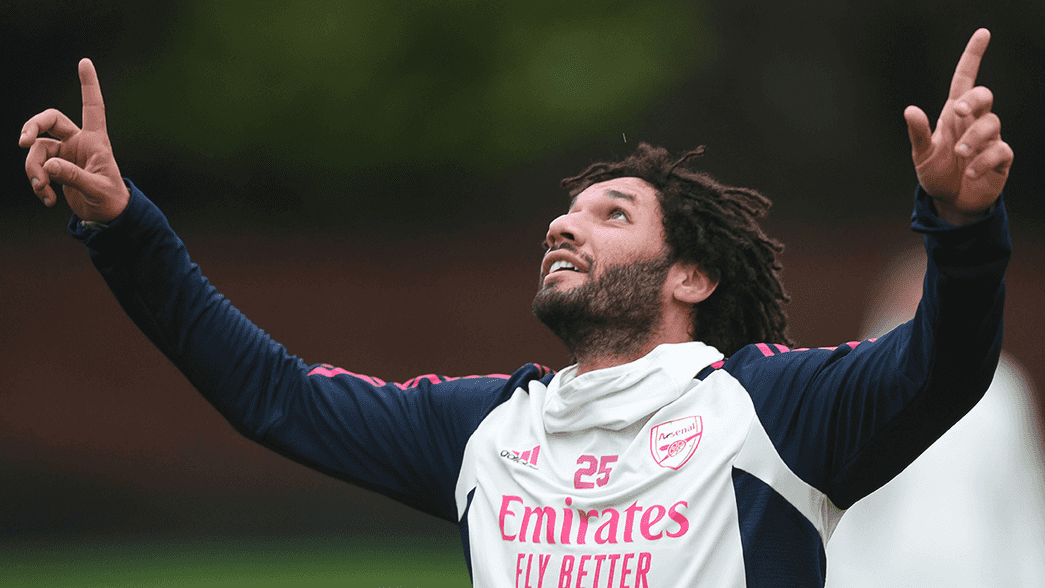With Ramadan coming to an end this week, Mohamed Elneny believes that fasting can benefit Muslim players, as they juggle their faith with the demands of producing peak physical performances on the pitch.
Ramadan is the holiest month of the Islamic calendar, celebrated by Muslims across the world who refrain from eating and drinking between sunrise to sunset throughout the period to help them understand the sufferings of others and get closer to God.
That can obviously affect an athlete’s routine, especially given the amount of emphasis put on sports science and nutrition to ensure players are in top condition come kick-off, but Mo believes there are plenty of other benefits to practising his faith to the full extent.
“For us, it's not a big difference,” he said. “We're happy because Ramadan comes for just 30 days every year and we don't really think too much about how much we will be fasting.
“Every footballer when he trains needs to drink for your body. When you’ve finished training we need food. Ramadan doesn't give you this but it gives you peace that God will be happy with you, and the respect you're going to get from people because you have not made an exception.
“When some players are fasting, you can see them scoring goals and they're doing great. This tells us fasting is not bad, it’s actually something really good because God is happy with you and you will do well because God will help you.”

The Egyptian admits Ramadan is tough to observe, but that’s exactly why he does it. He also feels that fasting allows him to purge his body and become stronger in the long run, and is keen to dispel the theory that a lack of fuel in his body doesn’t diminish his effectiveness during games.
“You’ve got to be strong in your head, in your mind,” he adds. “It is really good for your body because you give everything, and if you have fat or anything else bad inside your body, it will be gone.
“My first Premier League goal came when I was fasting when we played Newcastle away. My body looked different, and the strength and power I had was small. This means I wasn’t as strong, but God helped me.
“God knows how hard it is but you’re still doing it, and they help you. Some people might think that because I don’t eat or drink I might get thin, but it’s not like that.”
This Ramadan is different for Mo, having suffered a knee injury in January that will require him to spend months rehabbing in the gym. That has allowed him to make a pilgrimage to the holy site of Mecca in Saudi Arabia during this Ramadan, but now back at London Colney he is having to exert even more energy in an attempt to fully recover.

That has made fasting even more difficult to negotiate, but he has thanked our medical team for preparing tailored plans to make it as easy as possible to follow his faith and make as quick a return as possible.
On the differences between this and previous seasons, Mo revealed: “In training, you train for an hour and a half, or two hours maximum and you are around your teammates and the coaches. In the gym, you are on your own with the physio, everything is focused on your injury and you put a lot of energy into it. Maybe you have three hours in the gym, so it is a lot of work.
“I have to thank the Arsenal medical team because they have been exceptional with me. The doctor, the physio and the nutritionist send me a plan so that every day I know what to eat, what to drink and what tablets to take. They go through all the details with me.
“After the sun goes down I have to eat a lot of protein because I am doing gym work, and when I am doing a heavy gym session with weights I have to drink protein shakes to also hydrate. Before I sleep I have some fruits and yoghurts. There are a lot of things to consider, and without [the medical team] it would be more difficult.”
Copyright 2024 The Arsenal Football Club Limited. Permission to use quotations from this article is granted subject to appropriate credit being given to www.arsenal.com as the source.










